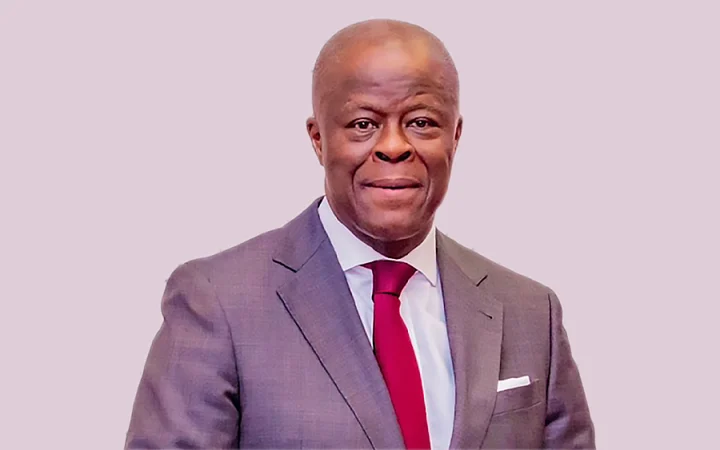Nigeria’s Minister of Finance and Coordinating Minister of the Economy, Wale Edun, has assured capital market stakeholders that the government will pursue a balanced and growth-oriented approach in implementing the proposed capital gains tax (CGT) framework, amid growing concerns among stockbrokers and investors over the potential impact of the reform on market liquidity and investment inflows.
Speaking during a meeting with representatives of the Chartered Institute of Stockbrokers (CIS) and the Association of Securities Dealing Houses of Nigeria (ASHON) in Abuja, Edun emphasised that the administration of President Bola Tinubu remains committed to supporting capital market development and ensuring that taxation policies do not stifle investment or undermine economic growth.

The minister acknowledged the recent anxiety among stockbrokers and investors regarding the ongoing fiscal reforms under the Presidential Committee on Fiscal Policy and Tax Reforms, led by Taiwo Oyedele, particularly proposals aimed at streamlining Nigeria’s multiple taxation system. Edun said the government is determined to strengthen the capital market as a major driver of national development and wealth creation.
“We are mindful of the importance of the capital market to economic growth and job creation. Any reform on capital gains tax will be implemented in a way that protects investors’ confidence and sustains the momentum we are witnessing in the Nigerian Exchange,” Edun assured. He added that the goal of the tax reform is not to burden market participants but to create a transparent, fair, and growth-driven fiscal framework that enhances productivity and strengthens investor trust.
The Nigerian Exchange (NGX) has witnessed impressive performance over the past year, driven largely by robust corporate earnings, improved foreign participation, and positive macroeconomic reforms. However, stakeholders in the market have voiced concerns that poorly calibrated taxation on capital gains could erode these gains, leading to capital flight or reduced participation by both local and foreign investors.
In response, Edun reaffirmed that the government values the feedback from key stakeholders and would ensure extensive consultations before any fiscal changes are enacted. “This administration operates on inclusiveness and transparency. We are not taking any decision in isolation. The reform process will involve continuous engagement with stockbrokers, investors, and other critical players,” he said.
The finance minister further noted that the government’s broader objective is to widen the tax net rather than increase tax rates, ensuring that more sectors of the economy contribute fairly without discouraging legitimate investment activities. He pointed out that Nigeria’s tax-to-GDP ratio, currently estimated at around 10 percent, remains below the African average of 18 percent, underscoring the need for reforms that balance efficiency with fairness.
President of the Chartered Institute of Stockbrokers, Mr. Oluwole Adeosun, commended the minister’s reassurance, noting that the capital market plays a critical role in financing infrastructure, supporting entrepreneurship, and driving economic diversification. Adeosun urged the government to consider global best practices where capital gains taxation is structured to encourage long-term investment and wealth creation rather than discourage trading and market participation.
Similarly, ASHON Chairman, Sam Onukwue, appealed for fiscal policies that promote growth and stability. He highlighted that a predictable tax environment would help attract more listings to the NGX and strengthen Nigeria’s competitiveness as a preferred investment destination in Africa. “Investors thrive in a stable and transparent policy environment. The government’s engagement with market operators is a positive step that will enhance trust,” he stated.
Market analysts also believe that the minister’s assurance could help sustain investor optimism, especially as the equities market adjusts to recent fiscal and monetary changes. The Nigerian Exchange has recently experienced fluctuations due to profit-taking and concerns about policy uncertainty, but the government’s tone of reassurance is expected to stabilise sentiments.
Experts further argue that an equitable capital gains tax framework, if properly designed, could boost government revenues without hampering growth. Economist and capital market analyst, Dr. Abiola Adebayo, noted that “a well-structured capital gains tax can create fiscal space for government spending, provided that implementation is gradual, transparent, and investor-friendly. The key is to avoid policies that discourage portfolio inflows or long-term capital formation.”
Edun reiterated that the administration’s economic strategy is focused on rebuilding macroeconomic stability through fiscal discipline, market confidence, and private sector collaboration. He explained that the tax reform programme is part of broader efforts to enhance revenue generation, reduce fiscal leakages, and create an enabling environment for inclusive growth.
He also highlighted the need to strengthen regulatory synergy among fiscal and monetary institutions, stating that coordinated policies would enhance capital formation and liquidity. “We are working with the Central Bank of Nigeria and the Securities and Exchange Commission to ensure that fiscal and monetary policies complement each other in deepening the market and supporting sustainable growth,” he added.
As discussions on the new tax regime progress, stockbrokers and investors remain cautiously optimistic that the federal government will adopt a pragmatic approach that protects market vibrancy while meeting fiscal objectives.
Industry observers say that Edun’s reassurance comes at a crucial time when Nigeria’s capital market is being looked upon to support the administration’s $1 trillion economy vision. Maintaining investor confidence through predictable, market-friendly policies, they argue, will be key to achieving this goal.
Support InfoStride News' Credible Journalism: Only credible journalism can guarantee a fair, accountable and transparent society, including democracy and government. It involves a lot of efforts and money. We need your support. Click here to Donate
